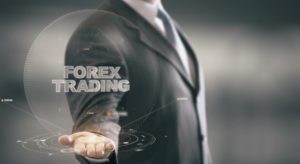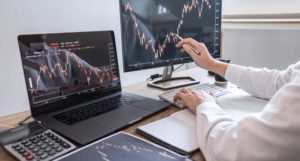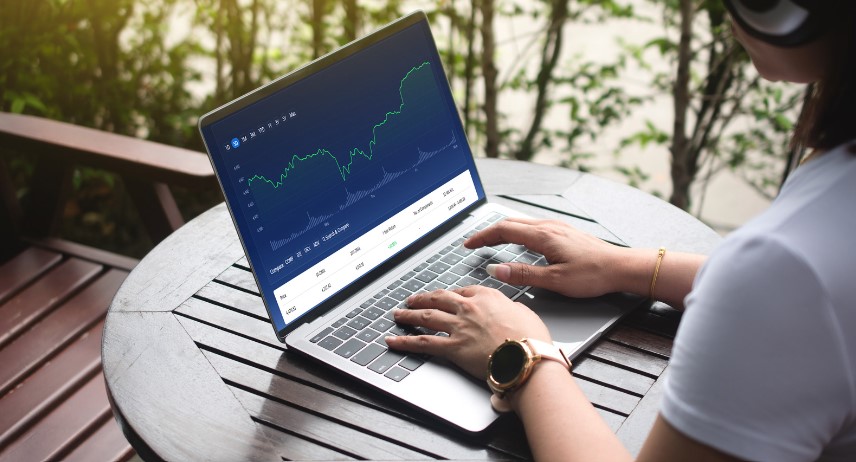Forex trading seems glamorous from afar, with stories of fortunes made and dreams fulfilled. But behind the flashy highlights lies an intricate world fraught with risk and uncertainty. Even seasoned traders struggle to ride currency markets’ choppy waters in search of elusive paydays.
Mastering Forex EAs: Strategies for Automated Trading
Understanding Forex Expert Advisors
Automated trading tools like Forex EAs promise a way to stay afloat. These expert advisors let algorithms crunch numbers and make trades faster than any human could. Helpful…to a point. They can rapidly capitalize on momentary changes in currency values and technical indicators. But no formula predicts the future perfectly. Markets stay unpredictable.

Designing an EA to profit consistently requires a deep feel for global macroeconomics, currency psychology, and technical nuances around volatility and volume. The best systems balance automated analytical power with human intuition and oversight. Rather than a passive cash machine, smart EAs aim to amplify traders’ strengths while minimizing emotional biases.
There’s no magic bullet for effortless forex profits. But in the right hands, EAs lend traders an edge. Though the risks always remain, their algorithms peel back a bit of currency trading’s daunting complexity.
Benefits of Using Forex EAs
Here are a few benefits why robot trading forex is preferred:
1. Consistency – A Key Edge
Unlike us humans, Forex expert advisors won’t lose discipline or panic when markets turn volatile. By strictly following programmed trading rules, EAs maintain the consistency that no trader can match over long periods. Removing emotions from decisions allows them to stick to defined strategies through ups and downs. This discipline stacks the odds for success over time.
2. Lightning-Fast Reaction Time
Prices fluctuate rapidly in currency markets, with short-lived changes across global news and data. EAs can scan for opportunities and execute trades much quicker than people can even blink. This sub-second reaction speed allows them to capitalize on momentary price swings that a manual trader would likely miss.
3. Rigorously Backtesting Strategies
Meticulously testing trading systems on historical datasets enables improving and optimizing them before risking real cash. An EA makes it feasible to run countless simulations to pinpoint the most profitable configurations. Automation takes human guesswork out of the equation so traders can zero in on what works best.
4. Always On Guard
Unlike we humans who need to sleep, EAs tirelessly monitor markets 24/7 looking to capitalize on movements whenever they occur. This around-the-clock availability ensures traders don’t miss late-night or early morning opportunities, which is key in a global forex market that never sleeps either.
Developing and Optimizing Forex EAs

Building an automated Forex trading system that consistently profits is no simple feat. Success requires skillfully blending analytics with real-world trading intuition. Simply coding a clever algorithm isn’t enough. Let’s walk through key steps to develop and optimize a winning EA.
1. Research and Strategy Development
First, extensive research helps devise an automated strategy aligning with current market realities. Studying price trends, volatility patterns, and trader psychology reveals insights for identifying promising trade opportunities. Technical indicators like RSI, moving averages and Bollinger Bands can serve as navigational guides.
2. Coding the Algorithm
With a strategic course charted, next comes translating trading rules into executable code. Proficiency in languages like MQL4 or MQL5 is crucial to architect the automated decision-making engine. Careful work here ensures the EA accurately mirrors the research-driven strategy.
3. Backtesting and Optimization
Once built, the EA must prove itself by traversing backtesting seas – running thousands of simulations across historical price data. Meticulous evaluation reveals performance weaknesses missed in live markets. Refining parameters and logic at this stage steers the EA toward safer profitability.
4. Forward Testing and Live Trading
Before launching with real cash at stake, the optimized EA should ride demo account markets. This forward testing in live conditions indicates if actual sailing stays smooth. Making any necessary adjustments then becomes much easier.
5. Risk Management and Monitoring
No trading voyage proceeds free of storms. Effective risk management remains essential when leveraging EAs. Defining stop losses, maintaining portfolio diversity and avoiding oversized positions keeps volatility from capsizing profits. Staying vigilant allows quickly adapting to shifting winds.
Strategies for Using Forex EAs

Employing automated trading tools effectively requires aligning strategies with shifting market winds and risk preferences. Let’s explore popular game plans for harnessing Forex EAs.
1. Identifying Trends
Catching a market wave early lets traders profitably coast in its direction. EAs can identify nascent trends using indicators like moving averages and Average Directional Index. Programming rules to enter uptrend trades on crosses above key averages (or below for downtrends) allows systematically following momentum.
2. Entry and Exit Points
Entering positions as trends start gaining steam maximizes upside exposure. Savvy exiting preserves gains secured. EAs can dynamically set trailing stop losses to lock in profits as prices move favorably. Letting winners run while truncating losses remains key.
3. Managing Risk
Even ideal market surfing experiences sudden storms. Effective risk management prepares for turmoil. EAs can program stop losses upon entry, automatically exiting early if prices turn unexpectedly. Take profit orders and do the opposite – capturing gains if movement hits favorable targets. Flexible adjustments help navigate unpredictable waters.
Monitoring and Adjusting Forex EAs
Managing a forex trading algorithm is not a simple “set it and forget it” endeavor. To realize lasting profits, human judgment and oversight remains essential.
No quantitatively-derived trading strategy survives unchanged for long in the messy real-world markets. Unforeseen data anomalies, regulatory changes, even shifting investor psychology can sink formerly profitable logic. Through an almost artistic blend of quantitative rigor and intuitive discretion, successful traders repeatedly adapt their strategies to stay profitable across environments.
This iterative fine-tuning stems as much from experience as formulas. The numbers provide indicators, but ultimately one must interpret market narratives and patterns to tweak strategies accordingly. Trading systems mimic human reasoning, but lose the gut instincts grown from experience. So, while automation promises efficiency, traders who disregard the human element do so at their peril.
Conclusion
Automated trading promises tantalizing capabilities – continuously scanning markets for profitable setups, instantly executing complex strategies, and codifying decisions ruled by logic rather than emotion. Yet transforming these theoretical advantages into real-world trading success has proven slippery.
The traders who have mastered algorithmic systems emphasize the long slog necessary to imbue reliability. Beyond just technical skills, they highlight the equal need for market savvy to guide ongoing refinements. The math can model the “what”, but human insight provides the “why” to drive progress.
Author Profile

- Blogger by Passion | Contributor to many Business Blogs in the United Kingdom | Fascinated to Write Blogs in Business & Startup Niches |
Latest entries
 BusinessJanuary 9, 20266 Fastest Cash House Buyers in the UK 2026
BusinessJanuary 9, 20266 Fastest Cash House Buyers in the UK 2026 BusinessDecember 12, 2025The Smart SME’s Guide to Future-Proofing Physical Assets
BusinessDecember 12, 2025The Smart SME’s Guide to Future-Proofing Physical Assets FinanceOctober 28, 2025How to Measure the ROI of Your Promotional Product Campaigns?
FinanceOctober 28, 2025How to Measure the ROI of Your Promotional Product Campaigns? Home & LivingOctober 4, 2025Moving Forward When Leicester Family Dynamics Change
Home & LivingOctober 4, 2025Moving Forward When Leicester Family Dynamics Change





